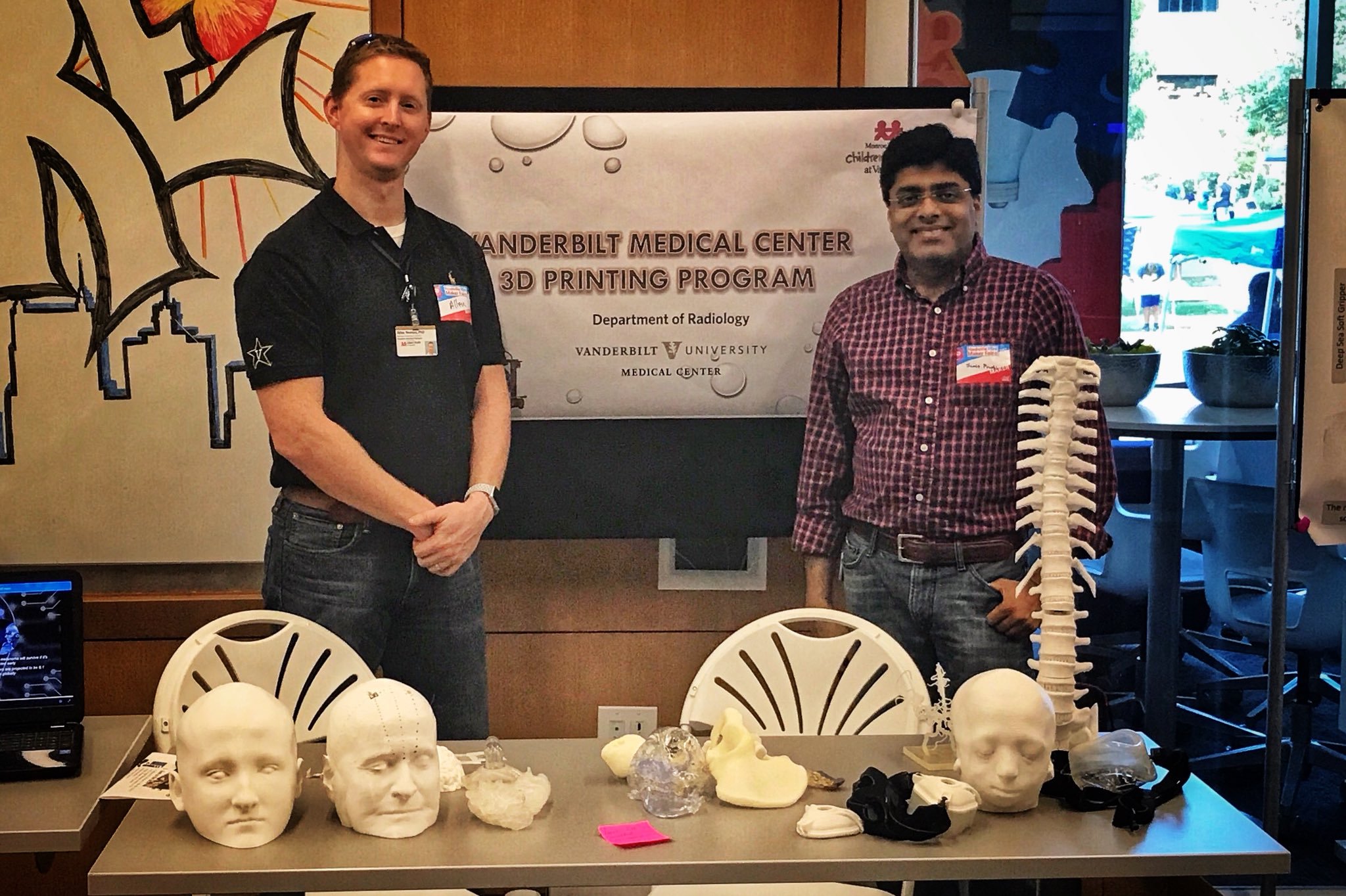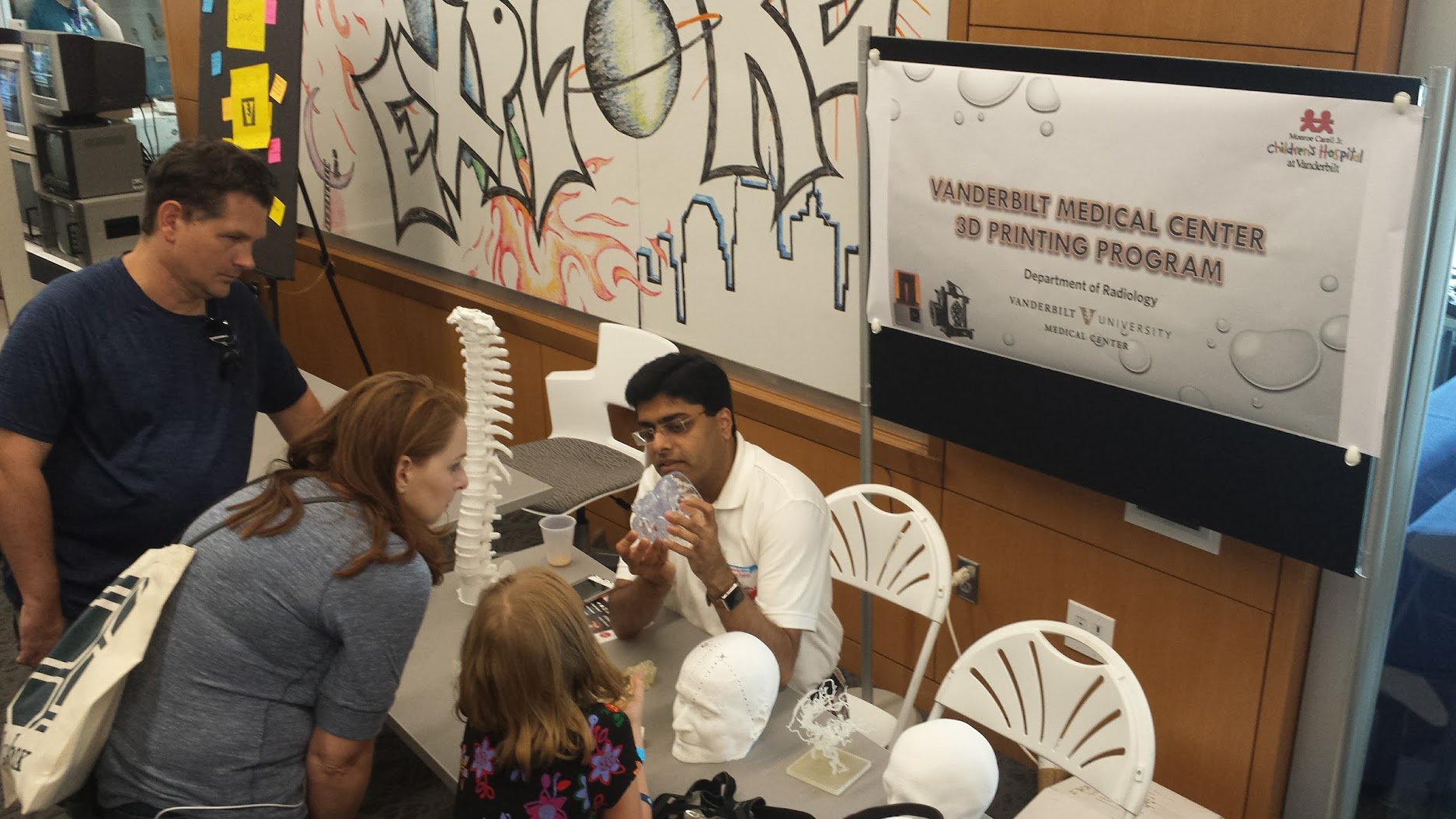Vanderbilt Radiology faculty Drs. Sumit Pruthi and Allen Newton and Neurosurgery resident Dr. Hansen Bow recently hosted an exhibit featuring Vanderbilt’s 3D Printing Program at the fifth annual Nashville Mini Maker Faire.
Hosted at the Wond’ry – Vanderbilt’s hub for innovation and entrepreneurship – the two-day event welcomed more than 4,000 attendees at 93 exhibits related to innovation and creativity.
“We were extremely excited to unveil our medical 3D printing program to the public at the Fifth Annual Maker Faire,” said Dr. Newton. “The diversity and positive atmosphere within the maker community provided the perfect opportunity to tell families more about the unique things we are doing at Vanderbilt.”
Departments across Vanderbilt University and the Medical Center, including engineering and biomedical informatics, participated in the Maker Faire, and expressed interest in collaborating with the Department of Radiology in their 3D printing efforts.
“I also saw lot of enthusiasm among families in regards to medical 3D printing,” said Dr. Pruthi. “We had a lot of visitors to our booth, and some of them specifically told me that they will pick Vanderbilt over other places because we have the capability of medical 3D printing.”
“There is something awesome that happens in a child’s mind when you tell them that the thing they are holding is a life-like model of an actual child’s heart,” added Dr. Newton. “They can intuitively and tangibly understand how this is making the practice of medicine better. They get it, and they’re excited.”
Dr. Pruthi, with support from administrators in the Monroe Carell Jr. Children’s Hospital at Vanderbilt and the department’s chair, Dr. Reed Omary, established the 3D Printing Program in 2015 to solve an unmet need in patient care at Vanderbilt. After recognizing the need for both clinical and engineering expertise, he partnered with Dr. Newton and Dr. Bow to further advance the program’s mission.
The program primarily serves the medical community by using patient-specific models and devices to improve medical care and education, assist with surgical planning and to create personalized patient-specific devices.
Earlier this year, Drs. Pruthi, Newton and Bow were awarded $10,000 to go towards the development of custom, 3D printed CPAP masks for children with craniofacial abnormalities at the department’s inaugural RadX Innovation Challenge.

Drs. Newton (left) and Pruthi (right) promote the Vanderbilt 3D Printing Program at the Nashville Mini Maker Faire

Dr. Pruthi shares information about 3D printed CPAP masks benefit children with craniofacial abnormalities